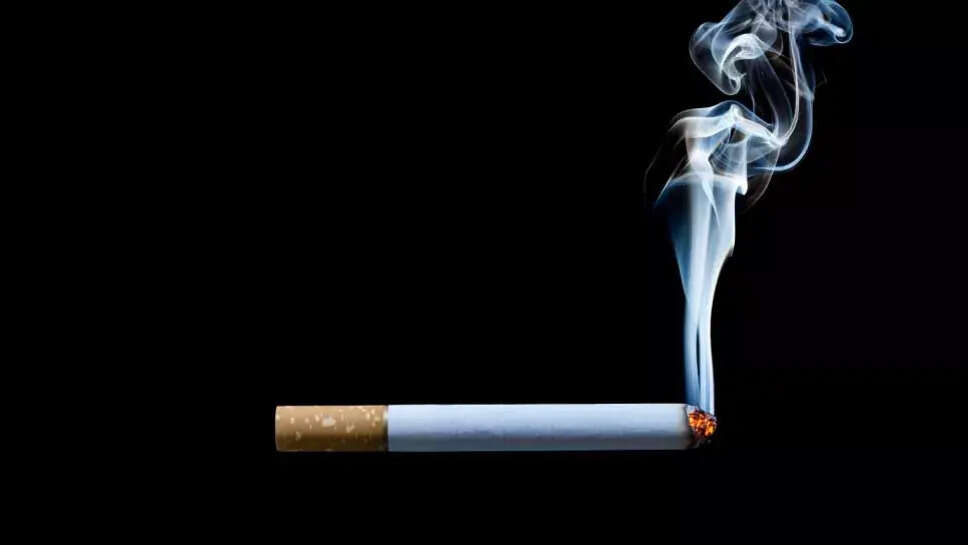Smoking Kills: The Truth Behind Every Puff

A Deadly Habit in Disguise
“Smoking is injurious to health” is a warning we've all heard countless times—on cigarette packs, in TV ads, and health posters. Yet millions continue to light up daily, ignoring the silent but devastating consequences. Cigarette smoking remains one of the leading causes of preventable death worldwide. What starts as a habit or social activity often turns into a powerful addiction, leading to long-term health damage, early death, and economic burden. This article explores the full spectrum of smoking's effects on health, society, and the individual.
What Happens When You Smoke
A single cigarette contains over 7,000 chemicals, of which at least 70 are known carcinogens—meaning they cause cancer. Some of the most toxic substances include:
-
Nicotine – an addictive stimulant
-
Tar – damages lungs and airways
-
Carbon monoxide – reduces oxygen in blood
-
Formaldehyde – used to preserve dead bodies
-
Ammonia – found in cleaning products
When inhaled, these chemicals enter your bloodstream almost instantly, impacting every organ in your body.
Immediate Effects on the Body
Even short-term smoking causes:
-
Increased heart rate and blood pressure
-
Reduced lung function
-
Irritation of throat and eyes
-
Bad breath and stained teeth
People often smoke to feel relaxed or focused, but the truth is, smoking raises stress in the long run due to nicotine withdrawal cycles. You smoke to relieve anxiety—but smoking is the root of that anxiety.
Long-Term Health Consequences
1. Lung Damage and Diseases
Smoking is responsible for over 85% of lung cancer cases. It also causes:
-
Chronic Obstructive Pulmonary Disease (COPD)
-
Chronic bronchitis
-
Emphysema
-
Frequent respiratory infections
Smokers often experience shortness of breath, persistent coughing, and reduced physical stamina.
2. Heart Disease
Cigarette smoking narrows blood vessels, leading to:
-
Atherosclerosis (hardening of arteries)
-
Heart attacks
-
High blood pressure
-
Stroke
The risk of heart disease is 2 to 4 times higher in smokers compared to non-smokers.
3. Cancer
Smoking causes not just lung cancer but also:
-
Mouth and throat cancer
-
Esophageal cancer
-
Stomach and pancreatic cancer
-
Bladder, kidney, and cervical cancer
No part of the body is safe when exposed to tobacco over time.
4. Weakened Immune System
Smokers fall sick more often and recover more slowly. Smoking:
-
Suppresses immune response
-
Increases inflammation
-
Delays wound healing
This is especially dangerous for people with chronic diseases or recovering from surgery.
Impact on Appearance and Aging
Smoking accelerates aging. It causes:
-
Wrinkles and sagging skin
-
Discolored nails and fingers
-
Tooth decay and gum disease
-
Hair loss
The toxic chemicals restrict blood flow and deplete skin of oxygen and nutrients.
Secondhand Smoke: The Silent Killer
It’s not just smokers who suffer. People around them—especially children, elderly, and pregnant women—are also at risk. Secondhand smoke can cause:
-
Asthma and bronchitis in children
-
Low birth weight or birth defects in babies
-
Increased risk of lung cancer in non-smokers
-
Sudden Infant Death Syndrome (SIDS)
There is no safe level of exposure to secondhand smoke. Even a few minutes can be harmful.
The Addictive Nature of Smoking
The main addictive substance in cigarettes is nicotine, which hooks the brain within seconds. It leads to:
-
Cravings
-
Mood swings
-
Difficulty concentrating
-
Withdrawal symptoms when trying to quit
This addiction keeps smokers trapped in a cycle of dependence—even when they know the risks.
Smoking and Mental Health
Many people smoke thinking it helps them cope with anxiety or depression. However, studies show:
-
Smoking worsens mental health over time
-
Smokers are more likely to suffer from depression and panic attacks
-
Quitting smoking often improves mood and reduces stress long-term
In short, smoking may feel like an escape—but it's actually deepening the problem.
Financial Burden of Smoking
Smoking is expensive—not just in terms of health, but also financially. Smokers spend thousands every year on cigarettes. Added to that are:
-
Medical bills for smoking-related illnesses
-
Lost productivity at work
-
Higher health insurance premiums
For low-income families, this can mean less money for essentials like food, education, and healthcare.
Quitting: The Road to Recovery
The good news? It's never too late to quit. Within minutes to days of stopping:
-
Heart rate and blood pressure normalize
-
Carbon monoxide levels drop
-
Breathing becomes easier
Within weeks to months:
-
Lung function improves
-
Risk of heart attack decreases
Within years:
-
Risk of stroke and cancer falls dramatically
-
Life expectancy increases
Tips for Quitting Smoking
-
Set a Quit Date – Mark your calendar and prepare mentally.
-
Tell Friends and Family – Build a support system.
-
Avoid Triggers – Stay away from places or people that tempt you.
-
Use Nicotine Replacements – Patches, gums, and sprays can help.
-
Seek Counseling or Support Groups – You’re not alone.
-
Keep Trying – Many people relapse before they finally quit. Don’t give up.
Your Life is Worth More Than a Cigarette
Smoking is not just a habit—it’s a slow, silent killer. Every puff damages your lungs, poisons your blood, weakens your body, and shortens your life. You may not feel it immediately, but over time, the damage builds up, and the cost becomes unbearable.
Quitting is not easy—but it’s possible and worth it. By stopping today, you not only save your health and money—you give yourself a chance at a longer, stronger, and more vibrant life.
Let today be the day you choose life over addiction, freedom over dependence, and health over harm.
.jpg)